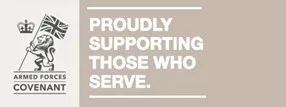Our Independent Stalking Advocacy Service was established in 2013 following the change in the law in 2012. This service is part of the Hampshire Stalking Clinic, a multi-agency forum that meets once a month to discuss the four stalking cases in the county that raise the highest level of concern. The clinic is made up of two senior police officers, the three police single points of contact (SPOC) for stalking across Hampshire, two probation officers, a forensic psychiatrist, a forensic psychologist, a CPS lawyer and Aurora’s independent stalking advocate (ISAC). The clinic’s focus is to assess the risk presented by the stalker, offer advice to involved professionals and offer support to those experiencing stalking.
Alongside working with survivors of stalking and supporting the work of the clinic across Hampshire, our advocate advises professionals working on stalking cases on the safety options available. The service offers support and advice to all genders for all dynamics of stalking.
A day in the life of Aurora’s Stalking Advocacy Service
The coffee is on and the phone rings, it’s an IDVA who is supporting someone whose case has been heard at the stalking clinic. The client is being stalking by an ex-partner, there are bail conditions in place and the stalker is skirting around the boundaries of them. The IDVA and the ISAC are in regular contact about this matter and, as a result of the conversation, the ISAC takes an action to speak with the SPOC for the area to alert her to the ongoing behaviour. On speaking with the SPOC, another case is raised as a concern and the ISAC takes the details of the investigating officer to contact and discuss the case. The officer talks through the case and takes the details of the advocacy service to offer support to the survivor on their next contact.
The advocate checks through her emails to prioritise her work for the rest of the day, there are two new referrals and a request for contact from a social worker. The referrals are entered into the secure database and contact is made with the survivors. The first client is with a police officer and writing their victim personal statement for a court case next month, they would like support through court so they arrange to speak tomorrow morning. The second person is available, they are experiencing stalking from someone they used to work with. The stalking screening tools are completed and there is a medium level of concern but with some escalation in the past week. The contacting behaviours have changed from the stalker setting up fake Facebook profiles to attempt contact to the stalker being at the workplace when the client turns up for work. Log keeping is advised, the client does not want to report to the police at the moment, preferring to see if it can be managed through their employer for the time being. A safety and support plan is agreed and they arrange to meet in a couple of days.
The social worker would like advice on how to proceed with a case where there are concerns about someone making applications to the civil court around the child in order to be in the same room as the client. The client doesn’t want any other services involved at the moment, because it would be too much. The ISAC offers advice on how to increase the support around the client and make the judge aware of the dynamics of stalking in the social care court report.
Over lunch the ISAC meets with a colleague to talk through advice that can be given to clients to increase their online safety. She then heads off to meet with a colleague from the Hampshire Stalking Clinic to discuss an upcoming presentation to police investigators as part of a safeguarding day.
On returning to the office, the ISAC makes sure all urgent queries that came in whilst she was out are answered and makes calls to the clients whose cases will be presented at the stalking clinic later on in the week. Whilst clients are unable to attend the meeting, the ISAC can make sure that their voice and experiences are represented to the professionals there, as this will inform the risk that the stalker presents and what work we can do as a result of the clinic.
If you live in Hampshire and are experiencing stalking, we are available from 9am-5pm throughout Stalking Awareness Week on 02392 479 254. For national enquiries, call the Paladin helpline on 07721757071 and 07769995393 or the National Stalking Helpline on 0808 802 0300.
Aurora’s Independent Stalking Advocate has an MSc in Criminology and Criminal Justice and worked for three years as an IDVA before taking on the stalking work. She has completed AVA’s accredited Stella Project training, Safelives’ accredited IDVA training, Paladin’s accredited ISAC training and training in the Stalking Risk Profile, for the assessment and management of stalkers.
Aurora’s Stalking Advocacy Service is funded until April 2017, as part of the Stalking Clinic, by the Office of the Police and Crime Commissioner.







